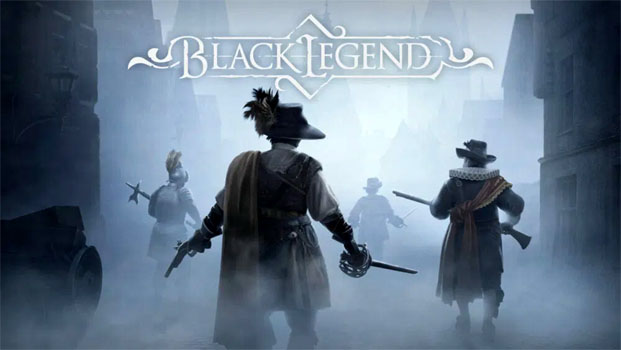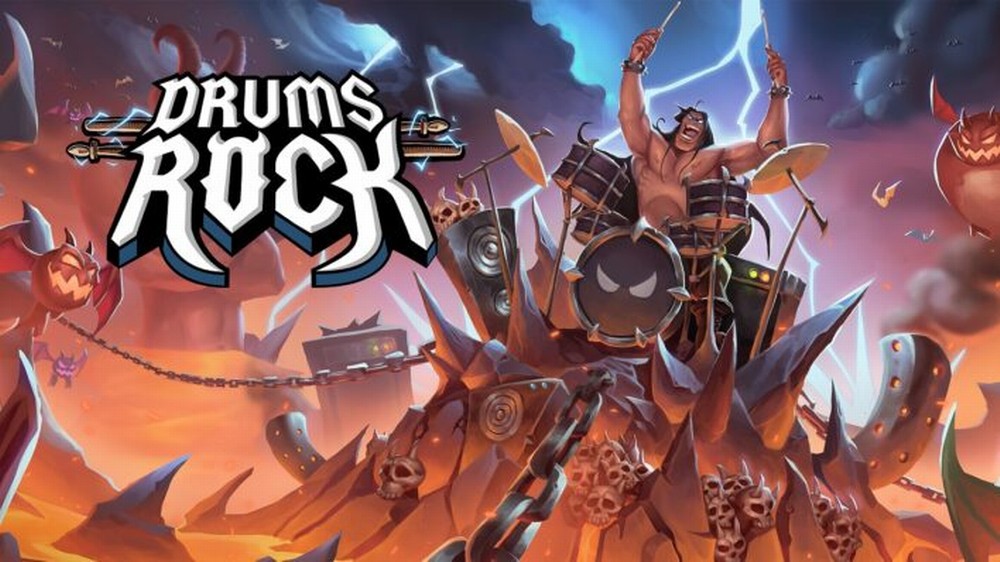Black Legend is an interesting new RPG from the fledgling Belgian strategy/RPG developer Warcave. Uniquely set in the 17th century European Low Lands area (Belgium, Netherlands, and Luxembourg), Black Legend tasks gamers with leading the resistance efforts to overthrow a band of Mephistian Cultists who are using a madness-inducing fog to take control of the city and its inhabitants. The game leans heavily on Dutch and Belgian folklore, which
As the first game I have ever played that was set in my family’s motherland – which I have visited many, many years ago – I was immediately blown away at the incredibly authentic Dutch architecture and street design that Warcave put into their fictional city of Grant. The overall aesthetic is dark and foggy – littered with dead bodies and destroyed property. This all helps to accentuate the atmosphere of devastation and despair that the Mephistians have inflicted upon the once peaceful city.
 In an interesting tweak on traditional gameplay, Warcave has not included a map of any sort in Black Legend – no paper maps to reference, no overhead maps on screen – all navigation is based on following the compass, reading street signs, and from repetition. While this was initially a bit frustrating, it does put a greater emphasis on observation and exploration within these richly designed levels.
In an interesting tweak on traditional gameplay, Warcave has not included a map of any sort in Black Legend – no paper maps to reference, no overhead maps on screen – all navigation is based on following the compass, reading street signs, and from repetition. While this was initially a bit frustrating, it does put a greater emphasis on observation and exploration within these richly designed levels.
A great deal of Black legend’s gameplay is spent exploring Grant’s various city districts in an attempt to amass loot, liberate imprisoned townsfolk, and recruit new resistance members. This is all straightforward RPG fare. Where Black Legend gets really interesting is in the turn-based combat, which not only incorporates a gird-based system similar to XCOM but also an incredibly complex alchemy system.
Black legend’s alchemy is based on the ancient holistic “medical” practice of Humourism, in which the four humours, or essential fluids, of the body must be in balance. These are yellow bile (fire), black bile (earth), blue phlegm (water), and red blood (air). These humours can be incorporated into attacks – either alone or stacked – which are then “catalyzed” by an attack, doling out heavier damage.
 Enemies are each affected differently by the humours – and it’s up to the gamer to figure out which humours, or combination of humours, will best dispatch the enemy at hand. Enemies also use humours in their attacks as well, so gamers will need to pay particular attention to their character and party make-up before going into battle.
Enemies are each affected differently by the humours – and it’s up to the gamer to figure out which humours, or combination of humours, will best dispatch the enemy at hand. Enemies also use humours in their attacks as well, so gamers will need to pay particular attention to their character and party make-up before going into battle.
I will say that it’s is not immediately clear how the alchemy system works, and the game gives very little explanation or training, so the combat mechanic can lead to a lot of frustration, but over time gamers will become familiar with what does and doesn’t seem to work, so it gets a bit easier to manage. Regardless, kudos go out to Warcave for trying something new rather than just sticking with the same old magic spells and potions that most RPG’s rely on.
If that didn’t sound like there was enough complexity, Black Legend also incorporates a deep class system featuring fifteen (15) available classes, with unique abilities and skill levels. Classes can be changed at will, with learned abilities and skills transferring to the new hybrid class. Yes, it’s all a lot to take in – and I have to admit that I was a bit lost for most of the first few hours of gameplay simply trying to figure all this out.
 While the gamer does have one central player the story revolves around, they also outfit and upgrade a party of up three additional fighters recruited from the many resistance members encountered throughout the story. Gamers can take any of their resistance members into battle, but given the cost of upgrading each, most gamers will stick to a favorite few and replace as needed.
While the gamer does have one central player the story revolves around, they also outfit and upgrade a party of up three additional fighters recruited from the many resistance members encountered throughout the story. Gamers can take any of their resistance members into battle, but given the cost of upgrading each, most gamers will stick to a favorite few and replace as needed.
While all of this sounds good – there are some issues with Black Legend on the PS4. Most of these come from the fact that it is obvious that the console release was a bit of an afterthought and that Black Legend probably plays a whole lot better a PC. Character navigation is simply not at all console controller-friendly, especially when the grid-based battle is in full swing, and when combined with the lack of good camera control, and random glitches and crashes, it all makes large battles a tad frustrating.
In short, I did enjoy my dozen or so hours spent attempting to free the citizens of Grant from the Mephistian Cultists. And while the turn-based, grid-based combat can get a bit overwhelming at times with the complex alchemy system, I have to give credit once again to the folks at Warcave for trying some new tricks in an established gaming genre.










